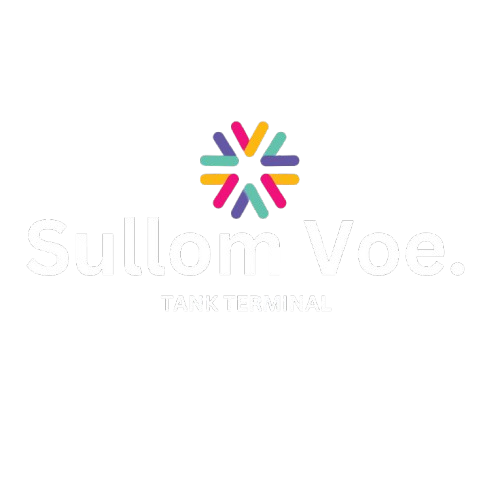The Legacy of Sullom Voe Terminal in Shetland: Fueling the North Sea’s Energy Flow
The Sullom Voe Terminal, nestled between the rolling hills and dramatic coastlines of Shetland, is more than just an oil and gas facility. It is a symbol of energy evolution, resilience, and strategic importance in the North Sea oil industry. For decades, it has been at the heart of the UK’s energy infrastructure, playing a pivotal role in transporting crude oil from offshore platforms to global markets.
In this article, we explore the rich legacy of Sullom Voe Terminal—how it began, its massive contribution to the economy, its operational structure, and what the future holds for this Northern powerhouse.
A Strategic Birth in the Energy Boom
The story of Sullom Voe Terminal began in the early 1970s during the North Sea oil boom. With offshore oil discoveries ramping up, there was an urgent need for a large-scale onshore facility to receive, store, and export crude oil safely and efficiently. The Shetland Islands were chosen because of their strategic location—close to the oil fields of the East Shetland Basin and with deep-water access for large tankers.
Construction of the terminal started in 1975, and by 1978 it received its first shipment of oil from the Brent field via pipeline. Over the years, oil from several other fields including Ninian, Magnus, and Thistle has flowed into Sullom Voe, making it a critical logistics and storage hub.
What Does the Terminal Actually Do?
The Sullom Voe Terminal is primarily a crude oil reception, storage, and export facility. Oil from offshore platforms arrives at the terminal via subsea pipelines. Once onshore, the crude oil is:
- Stabilized – to remove gases and water.
- Stored – in massive floating roof tanks.
- Exported – to tankers via offshore loading jetties or pipelines.
In its peak years, the terminal handled more than 1 million barrels of oil per day. It was also an early adopter of gas handling and flare reduction techniques, aligning with environmental responsibilities long before they became industry norms.
Economic Impact on Shetland and Beyond
Sullom Voe has significantly shaped the economy of Shetland Islands. The terminal brought:
- Job creation for local residents and offshore workers.
- Infrastructure improvements, including roads and ports.
- Revenue streams through Shetland Islands Council, which negotiated landmark agreements to secure oil-related revenues for local development.
This local reinvestment has helped Shetland maintain high standards in education, healthcare, and public services compared to other rural regions in the UK.
Nationally, Sullom Voe’s throughput contributed directly to the UK’s energy security and export capability. It also played a supporting role in reducing dependency on imported oil during the global energy crises of the 70s and 80s.
Environmental and Safety Legacy
Operating in one of the UK’s most pristine environments has always placed high expectations on Sullom Voe to maintain strict environmental controls. Over the years, the terminal has invested heavily in:
- Leak detection systems
- Flare gas recovery
- Emission reduction technologies
- Emergency spill response units
Its long record of operational safety has made it a model for terminal operations worldwide.
Additionally, the Shetland Oil Terminal Environmental Advisory Group (SOTEAG) has provided independent environmental oversight since the terminal’s inception—a pioneering model of industry-community-environment collaboration.
Ownership and Operational Changes
Initially managed by a consortium of oil companies, Sullom Voe Terminal has undergone several operational changes. BP was once the primary operator, but in 2020, ownership shifted, with EnQuest taking over as operator. This transfer aligned with EnQuest’s strategy of acquiring late-life assets and optimizing their operations.
The shift has also prompted new energy efficiency initiatives, workforce restructuring, and evaluations on how to repurpose the terminal for energy transition goals—including carbon capture and storage (CCS) opportunities.
The Future of Sullom Voe Terminal
As the global energy sector transitions towards net-zero emissions, the future of large oil terminals like Sullom Voe is under scrutiny. However, the terminal’s strategic infrastructure and location make it uniquely positioned to adapt.
Possible future uses include:
- Carbon capture storage (CCS): Using depleted oil fields and pipelines to store CO₂ safely underground.
- Hydrogen production and export: Leveraging North Sea wind power and infrastructure.
- Decommissioning base: Serving as a logistics hub for dismantling offshore platforms.
While the oil throughput has declined compared to peak years, repurposing the site for energy transition activities could extend its life well into the 2040s and beyond.
Why Sullom Voe Still Matters
Despite reduced crude volumes, the Sullom Voe Terminal remains a critical piece of the UK’s oil infrastructure. It has:
- A deep-water port that can accommodate large tankers.
- Established pipelines from key oil fields.
- Experienced workforce and operational history.
- Potential to support green energy and carbon-neutral projects.
This positions Sullom Voe as more than a relic of the past—it’s a bridge between fossil fuel legacy and clean energy future.
Inbound and Outbound Links
Inbound Link (internal site content idea)
If you’re interested in more about UK oil terminals, check out our article on The Role of Teesside in UK Fuel Distribution to see how inland terminals complement coastal giants like Sullom Voe.
Outbound Links (relevant and trusted)
- EnQuest – Official Website
- Shetland Islands Council
- SOTEAG – Environmental Oversight
- UK Government North Sea Transition Authority
Conclusion
The Sullom Voe Terminal in Shetland is a remarkable story of industrial ambition, local impact, and strategic adaptation. Born from the North Sea oil boom, it powered economic growth, upheld environmental stewardship, and now stands at the threshold of energy transformation.
As the UK pushes towards net zero, Sullom Voe may find itself once again in the spotlight—this time, not just as a mover of oil, but as a catalyst for the next energy chapter.
